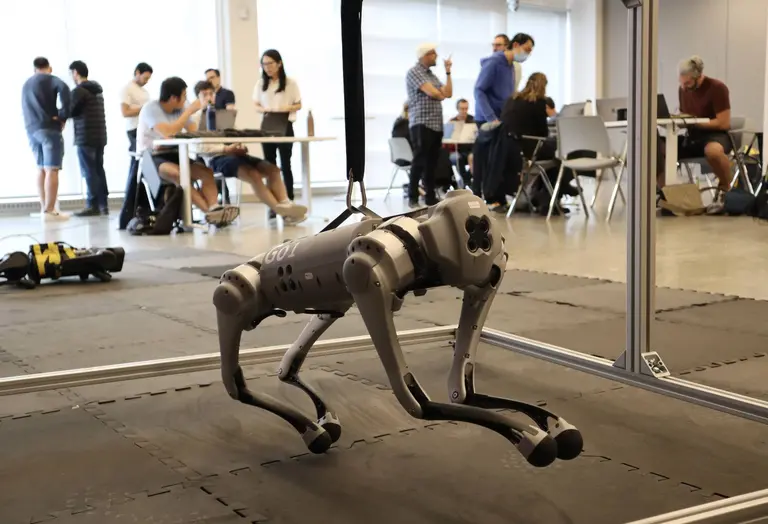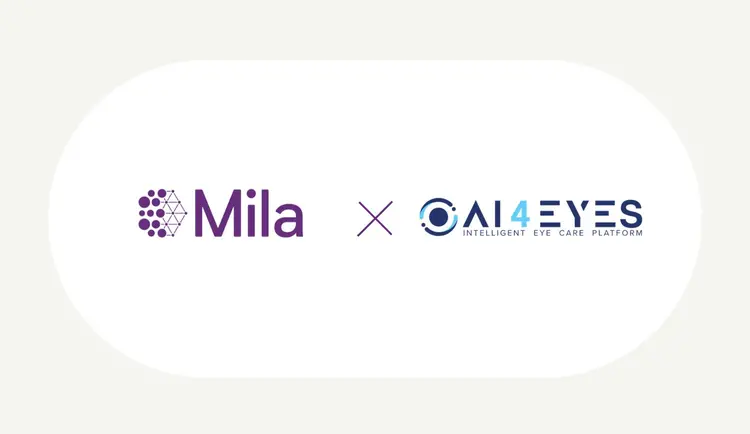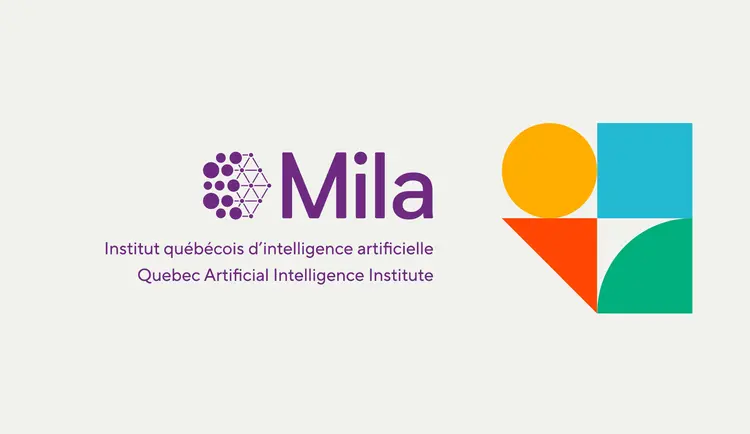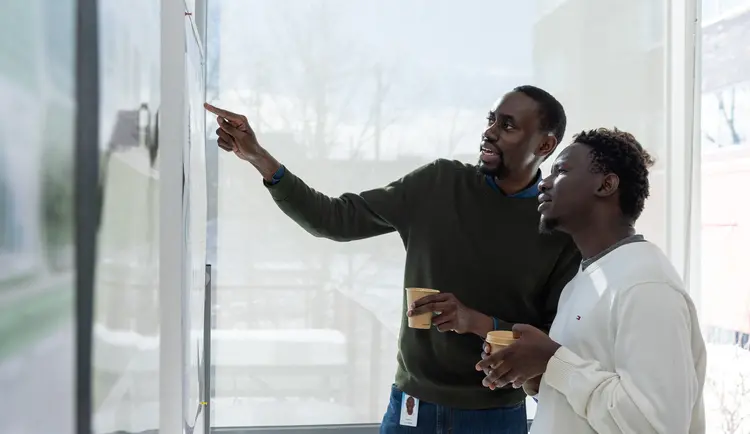
Robotics is a rapidly growing field with interest from around the world. Only at Mila, there are more than 20 professors and student researchers interested in this research topic.
From August 22 to 25, Mila held the first edition of its Robotics Summer School, organized in collaboration with its partners Ahead.IO Labs Inc. and NVIDIA. The group of students selected for this program had one main objective: to move the robots autonomously through an obstacle course.
In addition to this challenge, participants had the opportunity to attend lectures on Robotics Software environment, Deep Learning and Simultaneous localization and mapping (SLAM) by leading professors and researchers in the field.
In this article, we present the testimonies of four individuals who put a lot of effort and energy to make this event a great success.
Glen Berseth, Assistant Professor (UdeM), Core Academic Member (Mila) and Canada CIFAR AI Chair
Why did you organize the event?
Glen Berseth (G.B.): I organized this event for three reasons.
- Research and technology are advancing faster than ever, and people in robotics research can do more to share information on the most promising areas to work.
- For students to really get into robotics they need more experience with real hardware.
- Quadruped robots are lots of fun.
What is your highlight of the event?
G.B.: One of the teams during the competition evaluated a newly trained policy on the quadruped robot that managed to walk, albeit through obstacles.
This is exciting because it really showcases what can be accomplished with today's technology. The students started training that policy in simulation 15 minutes before it was executed on the real hardware.
What makes you passionate about robotics?
G.B.: I see the many possibilities for robotics to have a positive effect on our lives. People have been making tools for thousands of years, and the combination of AI and robotics will make a new generation of tools that can assist us in ways we can't even think of yet.
For example, at Institut Courtois, I am part of a team of amazing researchers that are automating scientific experimentation. If we can accelerate this most complex of tasks we can benefit from creating new batteries, new vaccines, new solar cells, etc., faster than ever before.
Florian Golemo, Post-Doc in machine learning for robots (Mila)
Why did you get involved in the event?
Florian Golemo (F.G.): I heard that Professor Glen Berseth was about to start a robot summer school and that robot dogs might be involved. Quadrupeds are very close to my heart. I think I've been working with them for different projects for over a year now and I wanted to show the students how to use them and what weird and interesting quirks they have.
I would love for more people to start using them because I think they are such an exciting platform for robotic assistants and companions.
What is your highlight of the event?
F.G.: In general, the energy from the students was just amazing. Their enthusiasm for working with real-world robots was great!
If I had to pick a moment, it would be the emotional rollercoaster of the final robot challenge. Some teams hadn't really tested their solutions yet on the hardware (only in simulation) and after giving a talk on the first day about how difficult this sim2real transfer is, I was amazed to see some of them working it out with very few steps and under crazy time pressure.
What makes you passionate about robotics?
F.G.: How can one not be passionate about robotics?! Especially for machine learning research, for me at least, that's the ultimate pay-off: seeing your ML algorithms work on hardware, move actual motors and solve a real task. I share a similar vision as Professor Glen Berseth of wanting to develop more capable robots that can help us do various tasks around the house and outdoors, like cleaning, delivering items, and helping blind and visually impaired folks navigate.
I think it'd be great if we could get more Mila people as excited for real robots as the students were during the summer school. I think the event was a great step towards creating visibility for us roboticists and hopefully this opens the door to more robot (dog) projects down the road.
Mitesh Patel, Developer Relationship Manager at NVIDIA
Why did you get involved in the event?
Mitesh Patel (M.P.): The primary motivation was to train graduate-level students to learn both the theoretical and practical aspects of robotics. Furthermore, the summer school helps students to learn about different software/frameworks used by the industry to develop different robotics applications. Events like this enable students to gain different skill sets such as hands-on practical training, learn about new frameworks, as well as provide networking opportunities with their peers in both academia and industry.
What is your highlight of the event?
M.P.: Programming and developing end-to-end systems are complex in nature and involve different challenges. The highlight of this event was students having first-hand experience of encountering these challenges while they were programming a quadruped robot to perform tasks such as training a robot to walk and avoid obstacles while it navigates around different environments.
What makes you passionate about robotics and AI?
M.P.: The robotics revolution powered using AI is rapidly accelerating and finding its way into various commercial applications in domains such as manufacturing, agriculture, healthcare, transportation, infrastructure, and many others. Innovation in each of these domains will allow researchers/industrial counterparts to develop more efficient ways of performing different tasks which in turn would increase overall throughput using fewer resources. I am passionate about how these technologies developed at the intersection of robotics and AI will shape our future.
Alex Michele Santo, CEO & Founder at Ahead.IO
Why did you get involved in the event?
Alex Michele Santo (A.M.S.): I believe Canada has an incredible talent pool. I’d like to see more research, more robotics work done in Canada.
The Summer Robotics School provides the opportunity for students to build experience, learn to cooperate with others and with robots, improve and build their basic understanding of what a robot is and programmed, how much work needs to be done to make them useful for humankind, while having fun and learning the highs and lows of competing.
What is your highlight of the event?
A.M.S.: See the same excitement, and a bit of frustration, I have when I work with robots on the students' faces.
What makes you passionate about robotics and AI?
A.M.S.: I grew up on a farm, before we had smartphones.I started tinkering with various types of machines that help you during the work and at a really young age I started repairing electronics on tractors and large arms that grab wood. I dreamed of autonomous machines that could have helped us during harvesting, carrying heavy weights or inspecting crops.
Today we have robots, that make us coffee, that clean our floors avoiding obstacles and detect issues and assist us during surgery.
I really like to see more intelligent autonomous mobile robots that would help the elderly on various home tasks, that would support farmers and builders and that would help with the detection and clearance of forest fires.





